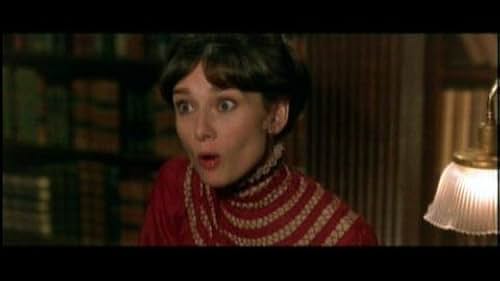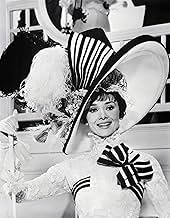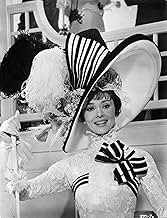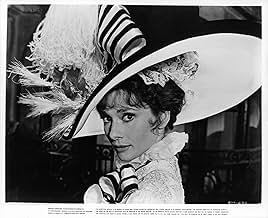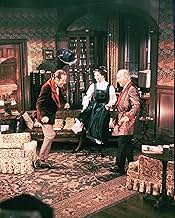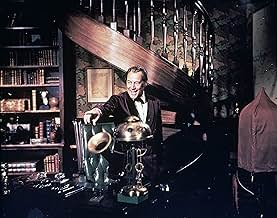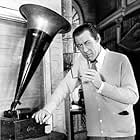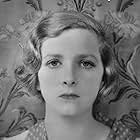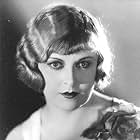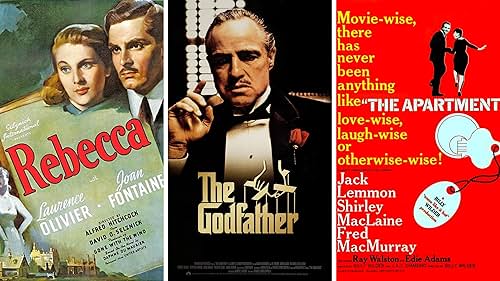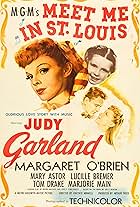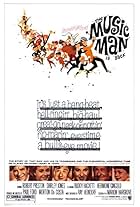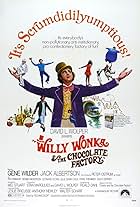In 1910s London, snobbish phonetics professor Henry Higgins agrees to a wager that he can make a crude flower girl, Eliza Doolittle, presentable in high society.In 1910s London, snobbish phonetics professor Henry Higgins agrees to a wager that he can make a crude flower girl, Eliza Doolittle, presentable in high society.In 1910s London, snobbish phonetics professor Henry Higgins agrees to a wager that he can make a crude flower girl, Eliza Doolittle, presentable in high society.
- Won 8 Oscars
- 26 wins & 13 nominations total
Elizabeth Aimers
- Cockney
- (uncredited)
Helen Albrecht
- Ascot Extra
- (uncredited)
John Alderson
- Jamie - Doolittle's crony
- (uncredited)
Mary Alexander
- Cockney
- (uncredited)
Gertrude Astor
- Cockney
- (uncredited)
LaWana Backer
- Ad Lib at Church
- (uncredited)
Walter Bacon
- Ball Guest
- (uncredited)
Best Picture Winners by Year
Best Picture Winners by Year
See the complete list of Best Picture winners. For fun, use the "sort order" function to rank by IMDb rating and other criteria.
Storyline
Did you know
- TriviaCostume designer Cecil Beaton created 1,500 costumes for this movie, with the exception of the pearl white gown Hepburn wears to the Embassy Ball, an original Edwardian specimen Beaton found in an antique shop.
- GoofsWhen Prof. Higgins sings "An Ordinary Man" he turns on several phonographs, seconds later he turns off one of them but all of the sounds stop.
- Quotes
Eliza Doolittle: The difference between a lady and a flower girl is not how she behaves, but how she is treated.
- Crazy creditsIn the posters, playbills and the original cast album for the stage version of "My Fair Lady", the credits always read "based on Bernard Shaw's 'Pygmalion' ", letting the audience know what play "My Fair Lady" was actually adapted from. The movie credits simply read "from a play by Bernard Shaw".
- Alternate versionsIn the remastered version of the film, some of the scene changes are changed from sudden cuts to wipe outs, as they probably were when the film was released. When CBS Fox released it on video originally, they were changed to sudden cuts.
- ConnectionsFeatured in The Ed Sullivan Show: Episode #18.17 (1965)
- SoundtracksWhy Can't the English?
(1956) (uncredited)
Music by Frederick Loewe
Lyrics by Alan Jay Lerner
Performed by Rex Harrison, Wilfrid Hyde-White, and Audrey Hepburn
Featured review
My Fair Lady is a musical which is very witty. The dialogue is wonderful. The story begins as Henry Higgins (Rex Harrison) makes a bet that he can transform flower girl Eliza Dolittle (Audrey Hepburn) into a high society lady. Henry Higgins is the perfect example of high society snobbery of the times. What he wasn't counting on was falling in love with his "project". Some people may find this film to be sexist but it is really quite the opposite. While it is about a sexist person it is not actually sexist at all. In fact it is all about the irony in the relationship between that of Eliza Dolittle and Henry Higgins. It is not unbelievable that Henry and Eliza should fall in love because they are not "compatible". Opposites often attract after all. Even though there is an anti-romantic disclaimer in the original play Pygmalion , it is obvious that Eliza and Higgins are meant for one another in the end of My Fair Lady. My Fair Lady is really different from Pygmalion. There is a movie version of Pygmalion which is the dull non-musical version of My Fair Lady. Rex Harrison is simply wonderful as Henry Higgins. He is not one bit tired with his role. And even though Julie Andrews originated the role of Eliza on Broadway, Audrey Hepburn is great in the role. It would be unfair to say that she didn't deserve the role just because her voice was dubbed. The supporting cast is first rate as well. This film is more than just good, it is great. If you have not seen it yet you certainly should!
*****/ ***** stars
*****/ ***** stars
- movie_lover_gurl
- Jun 25, 2001
- Permalink
Details
- Release date
- Country of origin
- Official site
- Language
- Also known as
- Moja draga dama
- Filming locations
- Stage 16, Warner Brothers Burbank Studios - 4000 Warner Boulevard, Burbank, California, USA(Ascot & Ballroom scenes)
- Production company
- See more company credits at IMDbPro
Box office
- Budget
- $17,000,000 (estimated)
- Gross US & Canada
- $72,560,711
- Opening weekend US & Canada
- $354,764
- Feb 17, 2019
- Gross worldwide
- $72,684,726
- Runtime2 hours 50 minutes
- Color
- Sound mix
- Aspect ratio
- 2.20 : 1
Contribute to this page
Suggest an edit or add missing content






